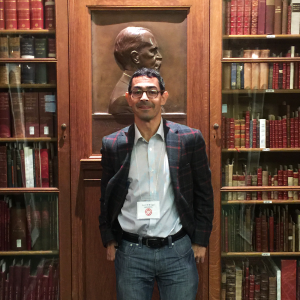Takeaway
Timing is everything! Daniel Pink's book, "When," will make you a believer!

| October 17, 2018 | 1 min read
By Scott Wright, MD, Johns Hopkins Medicine
Daniel Pink’s “When: The Scientific Secrets of Perfect Timing,” has spent months on bestseller lists, and is Amazon’s “Best Business Book of 2018 (so far).” With all the buzz, I wanted to read it to glean insights regarding clinical excellence. After reading, I showed a five-minute interview with Pink on PBS Newshour at our Divisional meeting to gather takeaways from our group.
Overall, I thought it was a really great book, and also the audio version is narrated well, for those that prefer to listen. What stood out most for me was how important beginnings, middles, and ends are. Pink believes that a good, healthy, productive start is critical to the success of the project. If you have a rocky start, ditch it, and start fresh.
Stasia Reynolds, MD, said what stood out most for her was, “I’m an early bird, a lark, and it made me think that I need to have all my most meaningful interactions between 10-11AM. I want to do my challenging work when I’m at my best, which is in the morning.”
Rachel Levine, MD, was intrigued by the idea of the Coffee Nap, or the “Nappuccino,” the practice of drinking a cup of your favorite caffeinated beverage, setting your alarm for twenty minutes, and waking up energized.
Levine also commented, “The most important thing is to be self-aware. I know I’m at my best in the morning. I try as much as possible to structure my time based on this understanding.”
Kim Williams was thinking about how “When” applies to teamwork: “I thought about compatibility in teams; how important it is to consider other people’s energy levels at different times of the day when working with your team.”
Finally, Heather Agee, MD, made a good concluding point to consider when scheduling patients, “‘When’ made me think that instead of always being patient-centric when scheduling, it might be important to be more physician-centric when coordinating care for complex patients. My complex patients would be best earlier in the day, when I am at my best.”
With these points in mind, enjoy this five minute interview with Pink:

